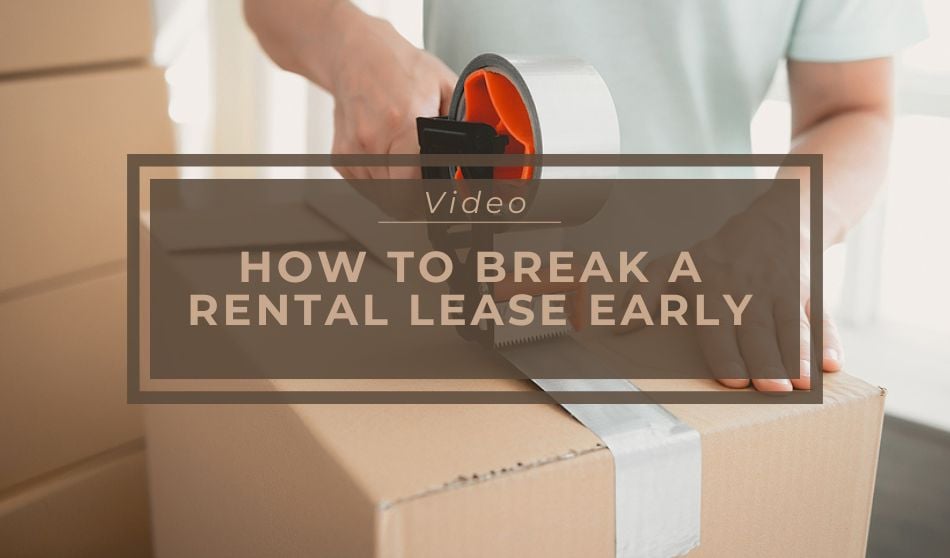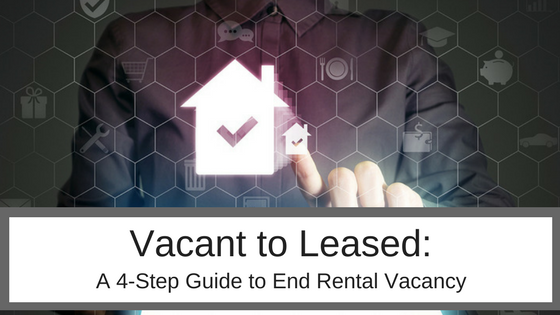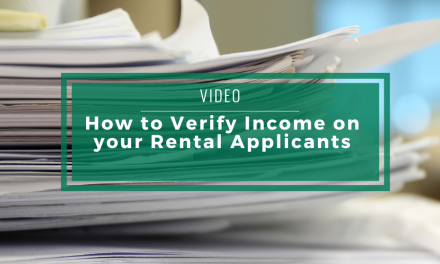
Do you have a renter who wants to break their rental lease early? You might be wondering how to respond to your tenants who want to break their rental agreement with you. In this video, we explore how to manage a request to end a rental agreement early, including your options for a lease-breaking fee, or sub-leasing the property, and the best way to respond to your tenant’s request.
How to Break a Rental Lease Early – Video Transcript
It is time to talk about breaking a rental lease early.
- What’s a landlord’s obligation?
- What’s a tenant’s responsibilities?
- And what are the options for both parties when it comes to a renter who wants to move out of a property before the rental lease is up?
My name is Kaycee Miller. I work with Rentec Direct property management software. I’m also a landlord, a real estate investor, and I’ve been writing about landlord-tenant topics for over 10 years on the Rentec Direct Blog.
I’ve also been a renter before too, so I can talk about both sides of the equation when it comes to landlord-tenant tips. I’m always happy to share my tips and advice as if I was talking to a friend who comes here with a rental related question.
Types of Rental Lease Terms for Rental Properties
So, breaking a lease early…what does it mean when it comes to rental leases and their terms?
There are several types of lease terms and lease lengths in the rental industry, including fixed-term leases, like a year, or month-to-month rental leases.
You can find week-to-week rental leases for a short-term rental, and some vacation rental properties have day-to-day lease terms. But for a standard, traditional, residential real estate lease, I’m talking about those fixed-term leases, like a year long lease. (Sometimes you see multi-year leases. That’s often the case in commercial properties.)
In my town in Oregon, we see a lot of month-to-month lease agreements. But where I grew up, it was always year-long leases. I always find it interesting to think about the different communities, the different markets, and how they handle lease agreements.
When a Tenant Wants to Break a Rental Lease
Let’s get back to talking about termed leases.
Say you have a property with a year-long lease agreement in place, and you have a renter who says, “Hey, I got a new job opportunity.” Or maybe, “I can’t afford to live here anymore,” or “I wanna move somewhere else and I wanna break my lease early.”
What is your responsibility as a landlord?
For the most part, the contract says a tenant committed to staying in that property for a fixed amount of time. They are responsible for the rent amount for that fixed amount of time. But you can give them the option to break early, either by paying a lease breaking fee, or working with them to try to re-rent the property before the lease is up.
Does a landlord have to re-rent a leased property?
When you agree to let a tenant break their lease, some states require that a landlord must do their best efforts to try and re-rent the property.
What does that mean?
Does that mean listing it using your property management software to put it up on those rental listing syndication sites?
Does it mean actively showing it?
State laws don’t really define specifics on what it takes to re-rent a property, but for the most part, if you list a property and say it’s available, I think that might cover your bases.
Now, your tenant might be more eager to get a new tenant in so they can stop paying their rental obligation to you. You can let your tenant help market the property and send any rental applicant leads your way for approval.
It’s actually a great idea to use the extra marketing efforts put forth by your current tenant to re-rent the property, just be sure to follow your tenant screening process for any referrals they send your way.
A Tenant’s Right to Legally Break Their Lease with No Penalty
There are some cases where a landlord or property manager has to legally let a tenant break their lease without any penalty. For example, when a rent in the military needs to move or someone with a government job needs to relocate, you might be required to allow your tenant to break their lease without penalty.
There are other states that have rules for victims of domestic violence or sexual assault or stalking, which give a tenant the opportunity to break their lease early for their safety without penalty.
Habitability Issues May Cause Early Lease Breaking without Penalty
From the renter’s perspective, there are some situations where a renter could break their lease without any penalties.
If there is a habitability issue, like a gas leak, there could be an opportunity for a tenant to move out immediately and not face any penalties or rental obligations.
As a reminder, it’s always important to check your state laws. I’m not a lawyer and I can’t give legal advice, but it’s important to remember that every city, every county, every state, and on the federal law level, there are all these laws that govern the landlord-tenant relationship and dictate what your responsibilities are as a landlord and what your rights are as a renter.
Renter Tips for Breaking a Lease Early
When it comes to breaking a lease, the best advice that I can give renters is:
1. Be a renter that is great from the beginning. If you have a good relationship with your landlord, they might be more likely to be accommodating to your needs.
2. Focus on great communication. When you communicate with your landlord about the reasons you need to move out, be honest, give them as much notice as possible, and be accommodating. For example, if they are trying to re-rent the property, do your best effort to make it look nice, make it look desirable, and make it available for showings.
Landlord Tips for Breaking a Lease Early
For landlords who have a renter who wants to break their rental lease early, think about what you could do to help this tenant out.
Are they moving because they lost their job and they can’t afford the property anymore? Do you really wanna keep them as a tenant and have them have that financial obligation rather than trying to relist it and deal with a vacancy over a tenant who can’t afford rent and a potential eviction?
Try to be as accommodating to them and work with them so you’re not dealing with someone who has a contract of paying rent that they can’t meet.
Final Thoughts
I always advise everyone to think about the landlord-tenant relationship and what you want out of it. Do you wanna be a landlord that people like working with and renting from? On the flip side, you are running a business and you need to maintain your contracts, set a precedence in regards to your responsibilities, and the processes that you follow.
Let me know if you’ve ever dealt with a renter breaking a lease and how you handled that situation. Please share in what state you manage your rental properties because I think it’s fascinating to learn about the different laws and regulations and processes in the different areas.
Thanks for stopping by and I look forward to sharing with you more landlord-tenant advice in the future.





